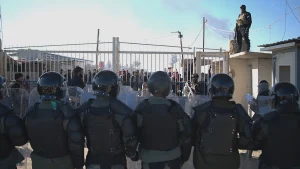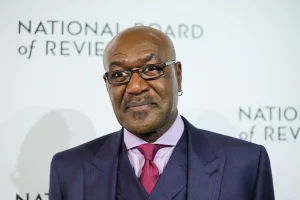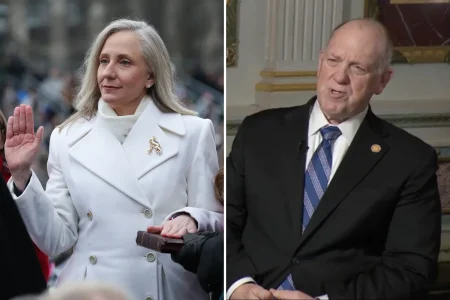Humanitarian Crisis Deepens as Military Retreats from Strategic Darfur City
Sudanese Military Withdrawal Leaves Civilians Vulnerable to RSF Attacks
In a significant development that has alarmed international observers and humanitarian organizations, the Sudanese military has withdrawn its forces from a key strategic city in Darfur, leaving the civilian population exposed to reported attacks from the Rapid Support Forces (RSF) paramilitary group. This military repositioning marks a critical turning point in the ongoing conflict that has devastated Sudan’s western region and raises serious concerns about the protection of civilians caught in the crossfire of this increasingly complex power struggle.
The withdrawal comes amid escalating tensions between Sudan’s military and the RSF, which have been locked in a bitter struggle for control since their power-sharing arrangement collapsed earlier this year. According to multiple sources on the ground, including local community leaders and humanitarian workers, civilians who attempted to flee the city following the military’s departure immediately faced violent persecution from advancing RSF fighters. Aid organizations operating in the region report that these attacks have followed a disturbingly familiar pattern observed throughout the Darfur conflict, where vulnerable populations are specifically targeted during power vacuums created by military repositioning.
“What we’re witnessing is a catastrophic protection crisis,” said Dr. Amina Khalil, a regional analyst with the International Crisis Group who has been monitoring the situation in Darfur for over a decade. “The military withdrawal was executed without adequate planning for civilian safety, and now we’re seeing the devastating consequences unfold in real-time. Thousands of people are trapped between advancing paramilitary forces and an increasingly treacherous journey to safety across harsh terrain with minimal supplies.” Dr. Khalil’s assessment reflects the growing consensus among humanitarian actors that the situation represents one of the most acute civilian protection challenges in the region since the height of the Darfur genocide nearly two decades ago.
Historical Context and Regional Implications of the Current Crisis
The current situation cannot be understood without examining the complex historical context of Darfur, a region that has experienced waves of violence since the early 2000s when government-backed militias – including the Janjaweed, predecessors to today’s RSF – conducted widespread attacks against non-Arab communities. The latest military withdrawal echoes previous instances where government forces have abandoned civilian populations in contested areas, leading to devastating consequences for local communities. This pattern has contributed to deep-seated mistrust between Darfuri civilians and state security forces, complicating efforts to establish stability in the region.
The strategic importance of this particular city extends beyond its immediate population. It serves as a crucial transportation hub connecting several major population centers in Darfur and provides access to essential supply routes for humanitarian aid. Control of the city gives any military force significant advantage in projecting power throughout the western region. International security analysts suggest the military’s decision to withdraw likely reflects a strategic realignment of forces rather than a permanent abandonment of territorial claims in Darfur. However, this calculation appears to have placed minimal value on the immediate security needs of the civilian population.
Regional implications of this development extend beyond Sudan’s borders. Neighboring Chad, which hosts hundreds of thousands of Darfuri refugees from previous waves of violence, has expressed concern about potential new displacement across its eastern border. The African Union and various regional bodies have called for immediate de-escalation and renewed commitment to civilian protection. Meanwhile, countries with strategic interests in Sudan – including Egypt, Saudi Arabia, and the United Arab Emirates – are closely monitoring the situation, aware that further destabilization in Darfur could have ripple effects throughout the already volatile region. Egyptian Foreign Minister Karim Hassan recently emphasized that “stability in Darfur is essential for stability across the entire Horn of Africa and Sahel regions.”
Humanitarian Impact and Response to Unfolding Tragedy
The humanitarian consequences of this military withdrawal have been swift and severe. According to the United Nations Office for the Coordination of Humanitarian Affairs (OCHA), at least 20,000 people attempted to flee the city in the immediate aftermath of the military’s departure. Those who remained behind – primarily the elderly, disabled, and families lacking transportation means – now face acute protection risks. Reports from medical facilities in neighboring areas indicate a significant increase in civilian casualties, with particular concern for women and children who represent approximately 70% of the newly displaced population.
“We’re seeing traumatized families arrive with almost nothing except the clothes they’re wearing,” explained Ibrahim Nur, a field coordinator with Médecins Sans Frontières (MSF) operating in a reception area for displaced persons approximately 40 kilometers from the city. “Many report being directly targeted by armed men as they fled. Our medical teams are treating gunshot wounds, victims of sexual violence, and children suffering from severe dehydration after days of movement in extreme heat.” The health situation is further complicated by pre-existing challenges, including limited medical infrastructure, shortages of essential medicines, and the ongoing threat of waterborne diseases that typically surge during population displacements in the region.
International humanitarian organizations have mobilized to respond, but access constraints remain a significant obstacle to delivering aid. The United Nations World Food Programme reports that food insecurity in the affected area had already reached critical levels before this latest crisis, with approximately 65% of households experiencing moderate to severe food insecurity. The current violence has severed supply lines and prevented planned food distributions, raising the specter of widespread hunger. Meanwhile, UNICEF has raised specific concerns about the estimated 8,000 children caught in the crisis, many of whom have been separated from their families during chaotic evacuations or while fleeing attacks.
International Response and Accountability Questions
The international community’s response to the unfolding crisis has been characterized by strong condemnations but limited concrete action. The United Nations Security Council held an emergency session to discuss the situation, resulting in a statement expressing “deep concern” about the protection of civilians but stopping short of authorizing any intervention. Human rights organizations have called for more decisive measures, including targeted sanctions against military and RSF leaders believed to be responsible for attacks on civilians. Amnesty International has documented what it describes as “probable war crimes” committed in the aftermath of the military withdrawal, including deliberate attacks on civilian infrastructure and summary executions.
“What we’re seeing now is the predictable outcome of years of international inaction and impunity,” stated Fatou Bensouda, former Chief Prosecutor of the International Criminal Court who previously led investigations into atrocities in Darfur. “When accountability mechanisms fail, perpetrators are emboldened to continue or even escalate their crimes. The people of Darfur have been abandoned not just by their military, but by an international system that promised to protect them.” Her comments reflect growing frustration among human rights advocates who point to the failure of international mechanisms to hold accountable those responsible for previous cycles of violence in Darfur.
Several Western governments, including the United States and United Kingdom, have issued statements calling for the immediate cessation of attacks against civilians and urging the Sudanese military to fulfill its protection responsibilities. However, these diplomatic entreaties have had limited impact on the ground reality. More concrete international engagement has come from humanitarian donors, with several countries announcing emergency funding packages to support relief operations. The European Union has allocated €25 million in additional humanitarian assistance specifically targeted at supporting displaced populations in Darfur, while calling for all parties to guarantee safe humanitarian access to affected communities.
Outlook and Prospects for Civilian Protection
As the situation continues to evolve, prospects for civilian protection remain deeply concerning. Military sources indicate no immediate plans to return forces to the abandoned city, while RSF leaders have made contradictory statements about their intentions toward the civilian population. Some RSF commanders have publicly promised to protect all civilians regardless of ethnic or political affiliation, but these assurances stand in stark contrast to the documented pattern of attacks. Community leaders from non-Arab groups in particular express profound skepticism about these promises, citing the RSF’s historical connections to the Janjaweed militias responsible for some of the worst atrocities in Darfur’s bloody history.
Diplomatic efforts to broker local ceasefires have shown limited success in other parts of Darfur, potentially offering a model for de-escalation in this latest hotspot. However, such arrangements typically depend on good-faith implementation by all parties – a condition that has rarely been sustained in the Darfur context. More promising protection initiatives have emerged from civil society, with local peace committees and traditional leadership structures working to negotiate safe passage for vulnerable groups and establish civilian-protected zones. These grassroots efforts, while commendable, require external support and recognition to succeed in the face of heavily armed military forces.
The coming weeks will be critical in determining whether this military withdrawal represents a temporary tactical adjustment or a more fundamental shift in the power dynamics of the Darfur conflict. What remains certain is that civilians are bearing the heaviest burden of this latest chapter in Sudan’s troubled history. Their protection must be prioritized by all actors – from the Sudanese military and RSF leadership to regional powers and the international community. Without immediate attention to civilian security needs, the humanitarian catastrophe unfolding in the wake of this military withdrawal threatens to escalate into yet another dark chapter for a region that has already endured decades of cyclical violence and displacement.







